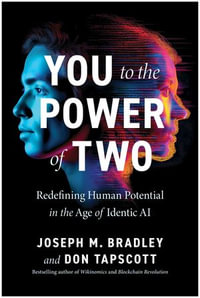
Semantic Web Services
Advancement through Evaluation
By: Brian Blake, ?Liliana Cabral, ?Birgitta KönigRies
eText | 28 June 2012 | Edition Number 1
At a Glance
eText
$159.01
or
Instant online reading in your Booktopia eTextbook Library *
Why choose an eTextbook?
Instant Access *
Purchase and read your book immediately
Read Aloud
Listen and follow along as Bookshelf reads to you
Study Tools
Built-in study tools like highlights and more
* eTextbooks are not downloadable to your eReader or an app and can be accessed via web browsers only. You must be connected to the internet and have no technical issues with your device or browser that could prevent the eTextbook from operating.
ISBN: 9783642287350
ISBN-10: 3642287352
Published: 28th June 2012
Format: ePUB
Language: English
Publisher: Springer Nature
Edition Number: 1
You Can Find This eBook In
Non-FictionComputing & I.T.DatabasesInformation RetrievalComputer ScienceArtificial IntelligenceComputer Programming & Software DevelopmentSoftware EngineeringDigital Lifestyle & Online World: Consumer & User GuidesPortable & Handheld Devices User GuidesSystems Analysis & DesignBusiness Applications
This product is categorised by
- Non-FictionComputing & I.T.DatabasesInformation Retrieval
- Non-FictionComputing & I.T.Computer ScienceArtificial Intelligence
- Non-FictionComputing & I.T.Computer Programming & Software DevelopmentSoftware Engineering
- Non-FictionComputing & I.T.Digital Lifestyle & Online World: Consumer & User GuidesPortable & Handheld Devices User Guides
- Non-FictionComputing & I.T.Computer ScienceSystems Analysis & Design
- Non-FictionComputing & I.T.Business Applications
- Non-FictionComputing & I.T.Information Technology General Issue
- Non-FictionComputing & I.T.Computer ScienceComputer Architecture & Logic Design
























